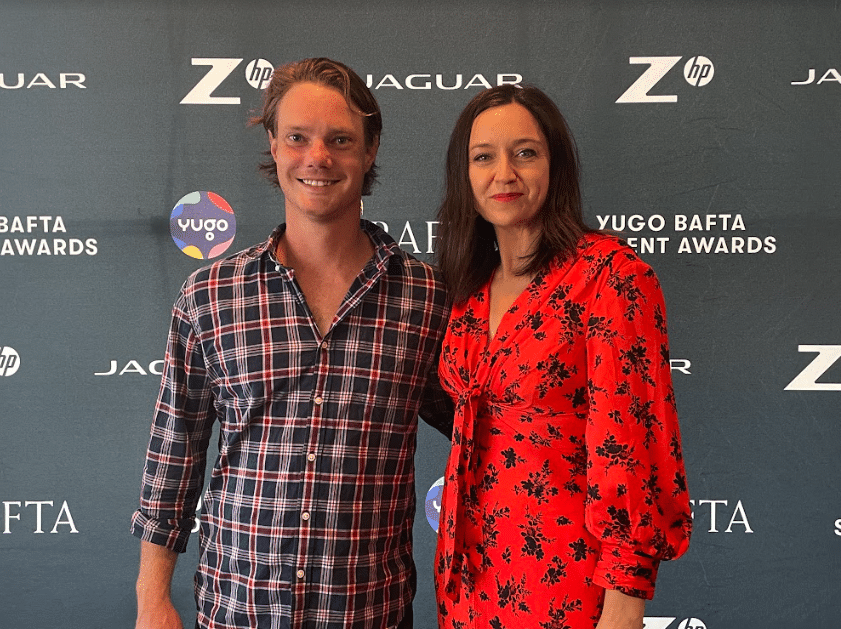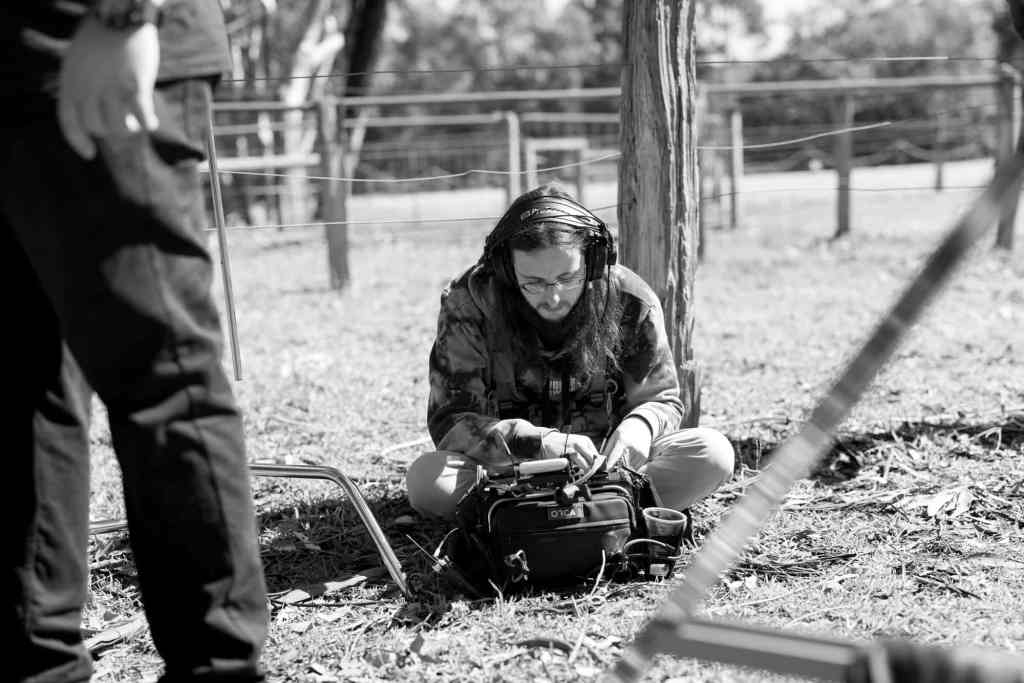Right now, director Emma Jackson’s biggest challenge is keeping up the glam for an astonishing number of awards ceremonies. Having recently graduated from the WA Screen Academy’s Master of Screen Studies, Emma has been jetsetting near and far after Walk Run Strive – the film she made during her course – netted an impressive stash of nominations, including a BAFTA Student Award. Emma and the Editor, Alan Chambers, were flown to LA for the week of award events, and the ceremony.
‘It’s just incredible,’ Emma says. ‘I’m in Sydney today for the Australian Directors Guild awards, as I’ve been nominated for Best Student Film and Best Short Subject Documentary.’

Having come to directing after a long career as an actor, Emma has been winning plaudits since the very start of her studies – her first assignment, a music video, was nominated for a prize at last year’s WA Screen Culture Awards. This year her film won the Best Documentary prize at these awards.
She says the Master course, which gives students access to state-of-the-art production and post-production facilities, made her feel part of the industry from day one.
‘I think one of the biggest things you get out of this course is you’re learning under fantastic mentors who are still all working in the industry. These are people who are very plugged into the world and who are still learning while working on their own things, and then passing on that knowledge to us.’
Associate Professor Cathy Henkel, Director of the Screen Academy and an award-winning documentary filmmaker with over 30 years industry experience (Laura’s Choice, The Burning Season), said: ‘We’re very pleased to see our documentaries doing so well on the world stage.
‘There is a vibrant documentary industry here in WA and preparing graduates for working in this sector and making impactful documentaries brings me great joy. Great documentaries can change lives and make the world better.’
Different streams
The course isn’t just pitched at budding directors. Emma says she enjoyed the chance to experience working in different roles on web series, short films, documentaries and VR, alongside feature film production.
‘The way the course is designed is there’s six different streams – directing, producing, editing, screenwriting, sound design and cinematography. You don’t just learn about your own special area, you learn everything around it as well.’
Jake Isard came to the course as a musician, interested in the Sound Design stream. He had already completed two undergraduate degrees – the second of which introduced him to screen sound – and says the Master course was a very different experience.
‘You’re with other people who are more committed since they’re doing a post grad,’ Jake says. ‘It was actually a lot more enjoyable than I remember some of my undergrad projects being, because everyone is there for the same reason, wanting to make the best films they can. Just meeting people who are on the same page as you is amazing.’

Emma agrees. During the course she met Alan Chambers, who worked as editor on all of her films and has since asked her to produce his next documentary.
‘Alan and I worked on pretty much everything together at the Screen Academy, because once you find someone that you work with really well, you tend to stick with them,’ Emma says.
‘Cooperating intensely over a number of projects meant we developed a simpatico and shorthand and I know that I will continue working with him for a very long time. It’s a great benefit of a course like this that you really do meet your team, the people you’re going to take forward with you throughout your career.’
Jake says that he appreciated that the course not only helped you meet colleagues, but also taught you the importance of collaboration – something that can be a new experience for artists or students who might be more accustomed to working solo.
‘You learn about what it means to make a film and how it is such a collaborative process and that there’s a hierarchy to all of that. If everyone tries to keep their intellectual property for themselves, it’s not really going to work. Straightaway, you’re learning, and you know this is what it’ll be like as soon as you leave.’
Beyond the opportunities to value collaboration, Jake says he appreciated that the specialised nature of the course gave him the space he needed to experiment in areas he hadn’t been able to try or hadn’t even considered before, such as VR, immersive sound or surround sound formats.
‘It was great to have the support of the mentors, who encourage you to use this space to experiment and find your own approach in your field. I got the chance to experiment with some interesting microphones on set, which they hadn’t really done at the Academy before. If something doesn’t work, this is the perfect place to learn that. You’ve learnt that before making bigger mistakes out in the industry!’
Jake says he would encourage anyone interested in film-making to apply for the course — even if, like him, they’ve already done their fair share of study. Weeks after finishing the course, he began working on as a professional on a web series for Screen Australia and, having won the Sandbox Productions Student of the Year award, will begin an internship at the company in the new year.
‘It’s not been a coincidence, getting work straight out of finishing the class. I really think it is all of those connections that you make here, ever since you walk through the door, because people working in the industry are taking note of your progress and are ready to offer you work.’
Since finishing the course, Emma has won a Screenwest Directors Attachment, which resulted in six weeks working alongside Rachel Ward on a big budget Disney+ production.
‘I was in all these big production meetings with Disney and I was on set, being able to watch how Rachel worked with all the other heads of department and relate that back to how I like to work. And then that led to me directing a second unit over in Sydney and then to actually lead and direct the Perth unit.’
She says the body of work she developed during the course has played a key part in kickstarting this next stage of her career.
‘It’s been amazing, but it all came from being known from the work I did during the course. You know, I wrote out my CV recently, and I was like, that’s quite a full CV for someone who’s just finished study. Straightaway, you’re building a portfolio of work that you can use as a calling card to the industry.’
Find out more about the Screen Academy Master of Screen Studies (WASA) at Edith Cowan University.





